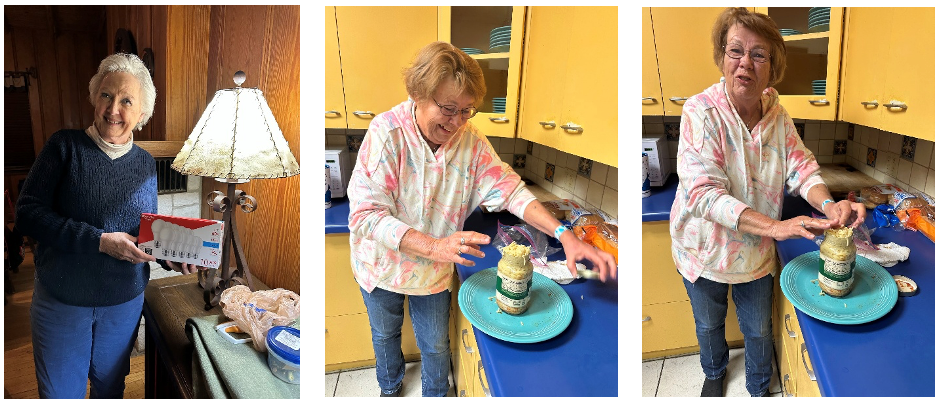Disaster Recovery and the LGBTQIA+ Community
- Libby Janes

- Jun 12, 2023
- 3 min read
“Queer life, trans life, is often full of storms and winds and floods and fires: the storms of religious contempt; the winds of gender and sexuality based discrimination; the floods of anti-LGBTQ violence; the fires of family and community estrangement.” - Rev. Naomi Washington-Leapheart, Director for Faith-Based and Interfaith Affairs, City of Philadelphia
This past March, I attended a webinar, but really it felt like I went to church. Rev. Naomi Washington-Leapheart was one of the panelists for a webinar entitled, “Helping LGBTQIA+ Survivors Before Disasters: Preparedness and Mitigation Considerations.” This webinar was organized by the DHS Center for Faith-Based and Neighborhood Partnerships, and you can find a recording of the webinar here: https://youtu.be/_ZLOW_ftqLs

Rev. Washington-Leapheart and the other guests on the webinar spoke the truth: the LGBTQIA+ community already live in a state of precariousness in our society, and research shows how often disaster recovery ignores, or even exacerbates, the risks LGBTQ+ individuals face physically, mentally, emotionally, and spiritually. I’ll include a few resources below that highlight instances transgender individuals being arrested for using showers at emergency shelters, and families unable to shelter together or access emergency resources due to discriminatory policies from federal and faith-based groups. Currently, there are 22 states that have a statutory religious exemption law that churches or nonprofits can appeal to if services burden moral beliefs. In other words, churches and faith based nonprofits can decline to serve LGBTQ+ individuals and families based on religious objections.

As I mentioned earlier, Rev. Washington-Leapheart took me to church, saying, “I’m inviting faith communities to accept the challenge to examine ideologies that prohibit kindness and compassion towards anybody.”
As individuals and communities around the nation are celebrating Pride this month, I invite you and your faith community to accept the challenge to examine the ideologies that inform how you embody kindness and compassion towards all of us who are made in the image of God, and in particular, those who find themselves all across the gender, identity, and sexuality spectrum.
And for some more concrete next steps to take:
Acknowledge religious harm and trauma has already impacted the LGBTQ+ community, even if your congregation or organization were not intentionally causing the harm
Develop relationships with LGBTQIA+ serving organizations before disasters occur and encourage the organization to develop their own disaster preparedness plans
Incorporate anti-discrimination policies into your manual of operations and grant-making process to partnering ministries and organizations

Additional Resources:
The Office of Gender, Racial & Intercultural Justice in the Presbyterian Mission Agency: Resources for Gender Justice Work
More Light Presbyterians: Resource Library
Out for Sustainability: Out for Sustainability (out4s.org)
How to Include the LGBT Community in Disaster Preparedness: How to Include the LGBT Community in Disaster Preparedness (hstoday.us)
Working with the LGBT Community: A Cultural Competence Guide for Emergency Responders and Volunteers: EmergencyResponders_-_LGBT_Competency.pdf (hrc.org)
NYVOAD DEI and Anti-Discrimination Pledge: NYVOAD DEI and Anti-discrimination Pledge | VOAD Affiliates (newyorkvoad.org)
Beyond Binary: (Re)Defining “Gender” for 21st Century Disaster Risk Reduction Research, Policy, and Practice: Beyond Binary: (Re)Defining “Gender” for 21st Century Disaster Risk Reduction Research, Policy, and Practice - PMC (nih.gov)
National Center for Disaster Philanthropy: LGBTQ+ Communities and Disasters - Center for Disaster Philanthropy
Disasters Volume 46, Issue 4: Queer and present danger: understanding the disparate impacts of disasters on LGBTQ+ communities - Goldsmith - 2022 - Disasters - Wiley Online Library
The Need for Equitable Disaster Response for LGBTQIA+ Communities: Queer and Present Danger Policy Brief Final (4).pdf - Google Drive
Issues in Science and Technology article: Disaster Response Must Help Protect LGBTQ+ Communities (issues.org)






Comments